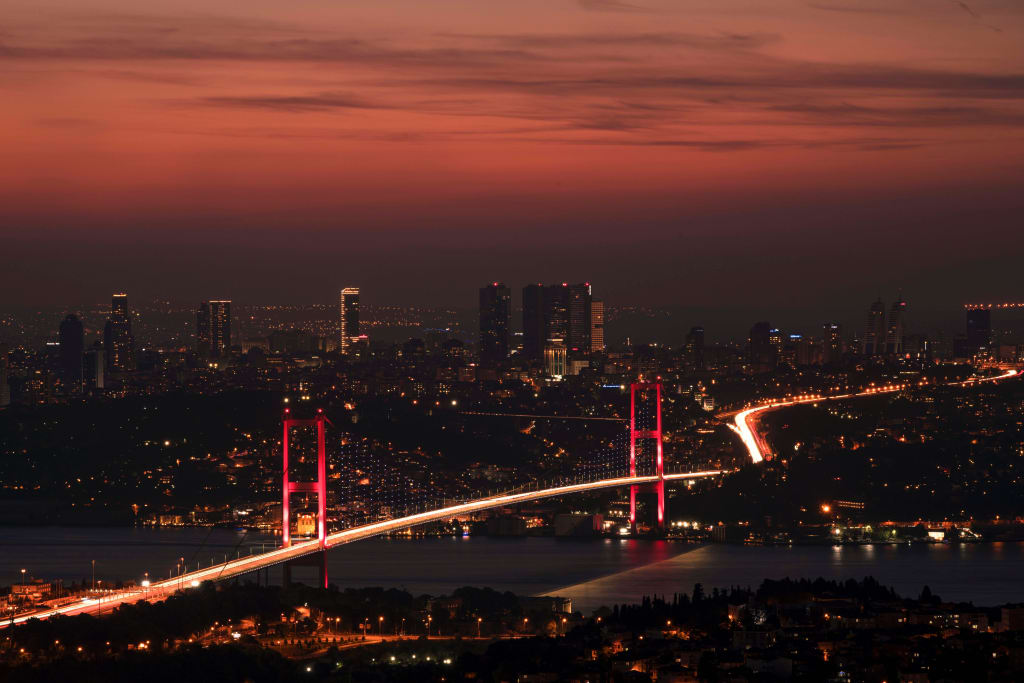Summary of Ahmet Hamdi Tanpınar's book called "peace"
It tells the story of a young man named Mumtaz who fights for peace.

"Peace" is a novel by the Turkish author Ahmet Hamdi Tanpınar, first published in 1944. It is set in Istanbul during the interwar period, between the two World Wars, and tells the story of a young man named Mümtaz who is struggling to find his place in the rapidly changing society.
The novel is divided into three parts, each of which represents a different stage in Mümtaz's life. In the first part, Mümtaz is a young student who is interested in literature and the arts. He is drawn to the intellectual and cultural scene of Istanbul, which is undergoing a period of modernization and Westernization. However, he feels disconnected from his traditional roots and is uncertain about his identity and his future.
In the second part of the novel, Mümtaz becomes a successful businessman and marries a woman named Nuran. He is still fascinated by the cultural scene of Istanbul, but he also becomes increasingly disillusioned with the materialism and superficiality of the city's elite. He begins to question the values of modernity and longs for a deeper sense of meaning and purpose in his life.
In the final part of the novel, Mümtaz is an old man who has retired from business and returned to his hometown of Bursa. He is haunted by memories of his past and the people he has lost, and he reflects on the changes that have taken place in Turkey over the course of his lifetime. He is torn between his nostalgia for the past and his desire for peace and contentment in the present.
Throughout the novel, Tanpınar explores themes such as tradition and modernity, East and West, and the search for identity and meaning. He portrays Istanbul as a city in transition, caught between its rich cultural heritage and the pressures of modernization and Westernization. He also explores the tension between materialism and spirituality, and the ways in which people try to find balance and harmony in their lives.
One of the key themes of the novel is the tension between tradition and modernity. Mümtaz is torn between his love for the traditional culture of his homeland and his fascination with the modern and Westernized culture of Istanbul. He struggles to reconcile these two conflicting influences and find his own place in the world.
Another important theme is the search for identity and meaning. Mümtaz is haunted by a sense of disconnection from his roots and a lack of purpose in his life. He longs for a deeper sense of meaning and a connection to something greater than himself.
Tanpınar also explores the idea of nostalgia and the ways in which people idealize the past. Mümtaz is haunted by memories of his childhood and his youth, and he longs to return to a simpler time when life was less complicated. However, he also recognizes the dangers of nostalgia and the need to embrace the present and the future.
Overall, "Peace" is a deeply introspective and philosophical novel that explores some of the most important themes and issues of Turkish society during the interwar period. It is a poignant and beautifully written work that offers a powerful commentary on the human condition and the search for peace and contentment in a rapidly changing world.
About the Creator
Serhat Köse
I strive to connect and inspire the power of language. Your support and feedback drives me to create challenging and compelling stories. Thank you for being a part of this journey. Let's continue to explore human wealth together.
Enjoyed the story? Support the Creator.
Subscribe for free to receive all their stories in your feed. You could also pledge your support or give them a one-off tip, letting them know you appreciate their work.






Comments
There are no comments for this story
Be the first to respond and start the conversation.